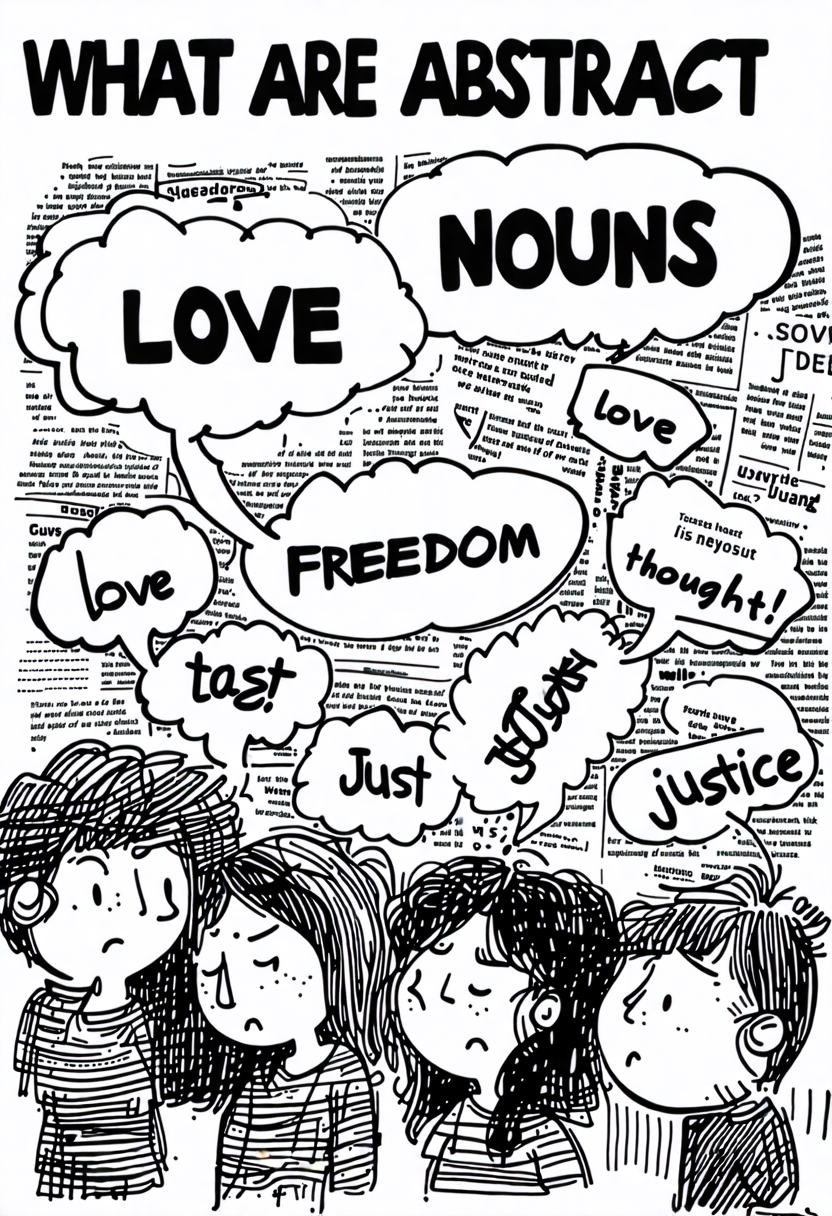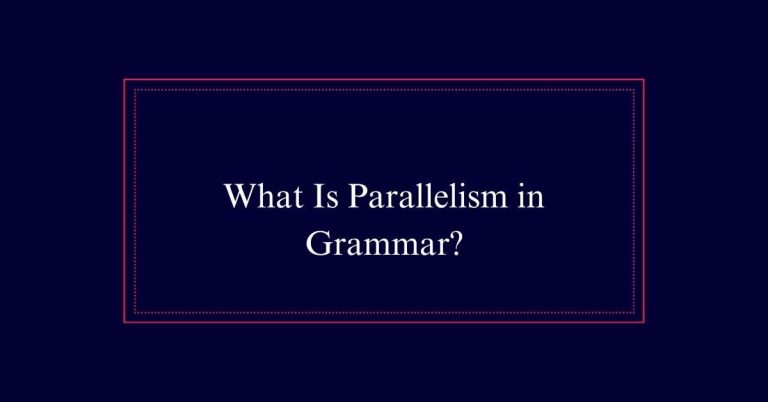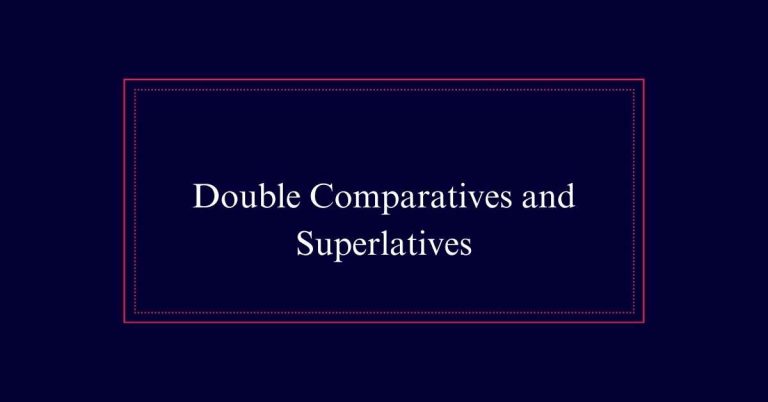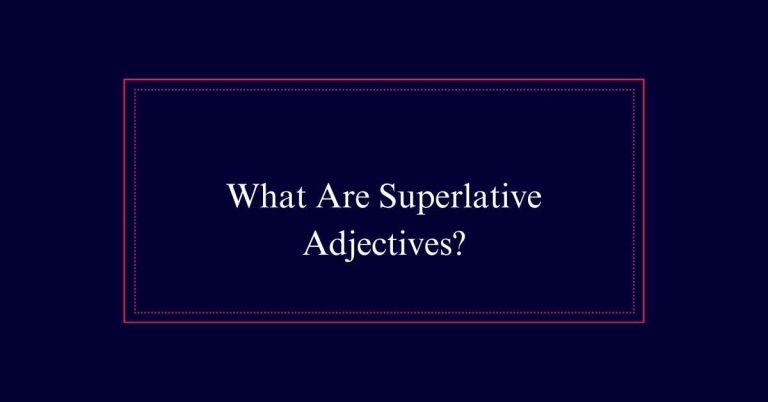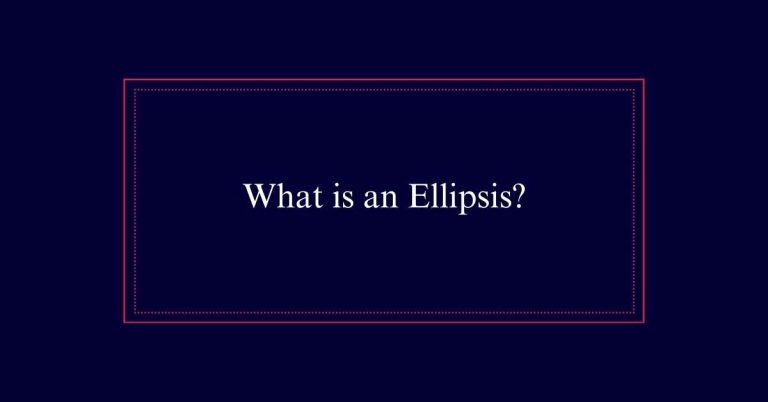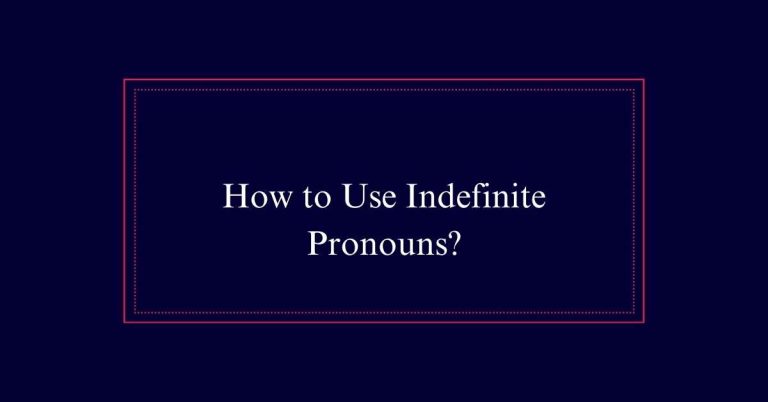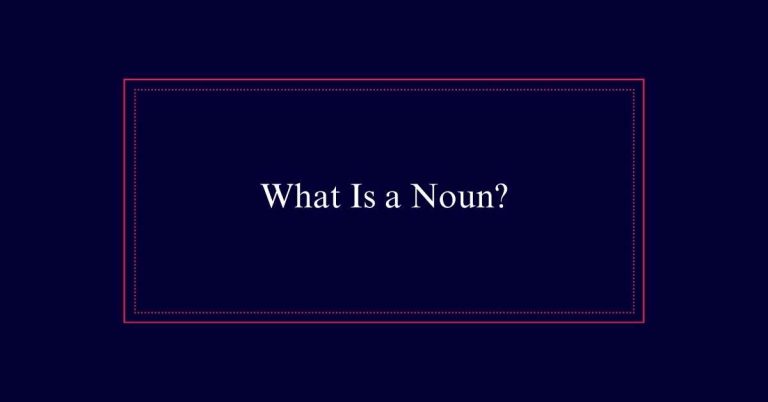What Are Abstract Nouns?
Abstract nouns are words that denote intangible concepts, ideas, emotions, and qualities, making them distinct from concrete nouns that name tangible objects and people. They express elements that cannot be physically sensed, such as ‘happiness,’ ‘freedom,’ ‘knowledge,’ and ‘bravery.’
Definition of Abstract Nouns
Abstract nouns are words that represent intangible concepts, ideas, emotions, and qualities. They are distinct from concrete nouns, which denote objects that can be sensed physically.
Abstract nouns encompass a broad range of elements that we cannot see, touch, hear, smell, or taste. Examples include love, happiness, anger, and freedom. These nouns are essential for expressing complex thoughts and feelings. They help convey emotions, values, and philosophical notions.
Unlike concrete nouns, abstract nouns cannot be experienced through the senses. They are vital for discussing topics that go beyond the physical world.
Tangible Vs. Intangible Nouns
In English grammar, nouns are classified as either tangible or intangible based on whether they can be perceived by the senses. Tangible nouns, also known as concrete nouns, refer to objects that can be seen, touched, heard, smelled, or tasted. Examples include ‘apple,’ ‘dog,’ and ‘music.’ These nouns represent physical entities that occupy space and can be experienced through the senses.
In contrast, intangible nouns, often referred to as abstract nouns, denote ideas, qualities, and concepts that cannot be physically sensed. Examples include ‘freedom,’ ‘happiness,’ and ‘knowledge.’ These nouns represent mental constructs and emotions that are not tied to physical objects.
Differentiating Abstract and Concrete Nouns
Understanding the difference between concrete and abstract nouns is fundamental to grasping English grammar. Concrete nouns refer to tangible things that can be perceived through the senses. Examples include ‘apple,’ ‘music,’ ‘fragrance,’ and ‘texture.’ These nouns represent items that you can see, touch, hear, smell, or taste.
In contrast, abstract nouns represent intangible concepts that cannot be sensed physically. Examples of abstract nouns include ‘love,’ ‘justice,’ ‘bravery,’ and ‘freedom.’ These nouns denote ideas, emotions, or qualities that are not perceptible by the senses.
Recognizing whether a noun is concrete or abstract helps in understanding its usage in sentences.
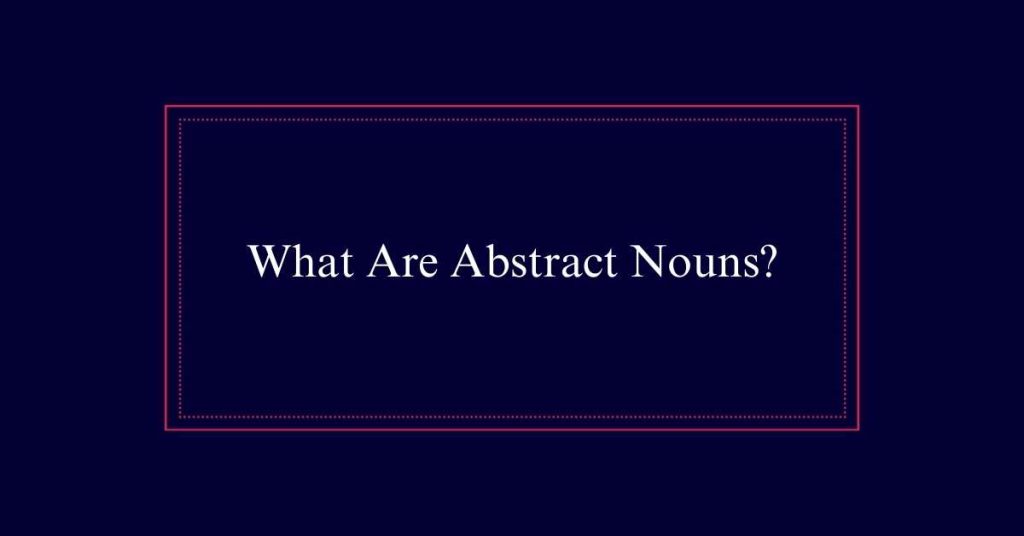
Abstract Nouns and Proper Nouns
Proper nouns represent specific names of people, places, or entities, and they are distinct from abstract nouns. While proper nouns denote particular and tangible subjects like ‘London’ or ‘Einstein,’ abstract nouns refer to intangible concepts that cannot be physically sensed.
Here are key distinctions:
- Specificity: Proper nouns are specific, whereas abstract nouns denote general ideas.
- Tangibility: Proper nouns are tangible and can be located or identified; abstract nouns are intangible.
- Capitalization: Proper nouns are always capitalized; abstract nouns follow standard capitalization rules.
- Usage: Proper nouns often refer to unique entities; abstract nouns express concepts like ‘freedom’ or ‘love.’
Common Abstract Nouns
Common abstract nouns often represent emotions, ideas, qualities, and concepts that are integral to human experience. These nouns are intangible and cannot be perceived by the senses.
Examples of common abstract nouns include emotions like love, anger, and happiness. They also cover ideas such as freedom and justice, and qualities like bravery and honesty. These abstract nouns are essential for expressing complex thoughts and feelings.
They help in articulating experiences that cannot be seen or touched. By understanding these nouns, we can better convey the nuanced aspects of life. Abstract nouns enrich language, allowing for deeper communication of human experiences and philosophical concepts.
Abstract Nouns as Verbs
Abstract nouns often evolve into verbs, adding dynamism to the language. This evolution allows abstract concepts to take action, enriching communication.
For instance, the noun ‘love’ can evolve into the verb ‘to love,’ conveying an active state of affection. Similarly, ‘hope’ transforms into ‘to hope,’ indicating the act of wishing for something.
Here are four examples:
- Love (noun) – ‘I love you’ (verb).
- Hope (noun) – ‘We hope for success’ (verb).
- Fear (noun) – ‘She fears failure’ (verb).
- Dream (noun) – ‘They dream of peace’ (verb).
Suffixes for Abstract Nouns
Forming abstract nouns often involves adding specific suffixes to root words. Common suffixes include ‘-ness,’ ‘-ity,’ ‘-tion,’ and ‘-ment.’
For example, the adjective ‘happy’ becomes ‘happiness’ with the addition of ‘-ness.’ The adjective ‘active’ turns into ‘activity’ with ‘-ity.’ Verbs can also transform into abstract nouns. The verb ‘inform’ becomes ‘information’ with the suffix ‘-tion.’ Another example is ‘achieve,’ which turns into ‘achievement’ with ‘-ment.’
Some words change entirely when forming abstract nouns. For instance, ‘strong’ becomes ‘strength.’ Understanding which suffix to use can be complex. It is often helpful to consult a dictionary for correct usage.
Abstract Nouns in Sentences
Understanding how to use abstract nouns in sentences enhances both writing and communication skills. Abstract nouns, while intangible, serve as vital elements in conveying complex ideas and emotions.
Here are some ways to effectively use abstract nouns in sentences:
- Subjects: Abstract nouns can be the subject of a sentence. Example: ‘Happiness is essential for a fulfilling life.’
- Objects: They can function as objects. Example: ‘She pursued freedom despite numerous obstacles.’
- Modifiers: Use them to modify other nouns. Example: ‘His courage inspired everyone.’
- Possessive Form: Abstract nouns can show possession. Example: ‘The success of the project was unprecedented.’
Singular and Plural Abstract Nouns
Singular and plural abstract nouns follow the same grammatical rules as other nouns. Singular abstract nouns represent one concept, emotion, or idea. Plural abstract nouns represent multiple instances of these intangible elements. For example, “happiness” is singular, while “happinesses” denotes various forms or instances of happiness.
Below is a table illustrating singular and plural forms of some common abstract nouns:
| Singular | Plural | Example in a Sentence |
|---|---|---|
| Happiness | Happinesses | Different happinesses filled the room. |
| Freedom | Freedoms | Various freedoms are cherished. |
| Wisdom | Wisdoms | Ancient wisdoms guide us today. |
| Courage | Courages | Diverse courages were displayed. |
Countable Vs. Uncountable Abstract Nouns
When discussing abstract nouns, it is important to distinguish between countable and uncountable forms. Countable abstract nouns refer to specific instances or occurrences and can be pluralized. Uncountable abstract nouns have a general or broad meaning and cannot be pluralized.
Here are some key points:
- Countable Abstract Nouns: Examples include ‘idea’ (ideas), ‘opinion’ (opinions), and ‘suggestion’ (suggestions).
- Uncountable Abstract Nouns: Examples include ‘happiness,’ ‘knowledge,’ and ‘courage.’
- Usage: Countable nouns can use articles like ‘a’ or ‘an’ and quantifiers like ‘many.’ Uncountable nouns use quantifiers like ‘much.’
- Grammar: Countable nouns follow regular pluralization rules, while uncountable nouns do not.
